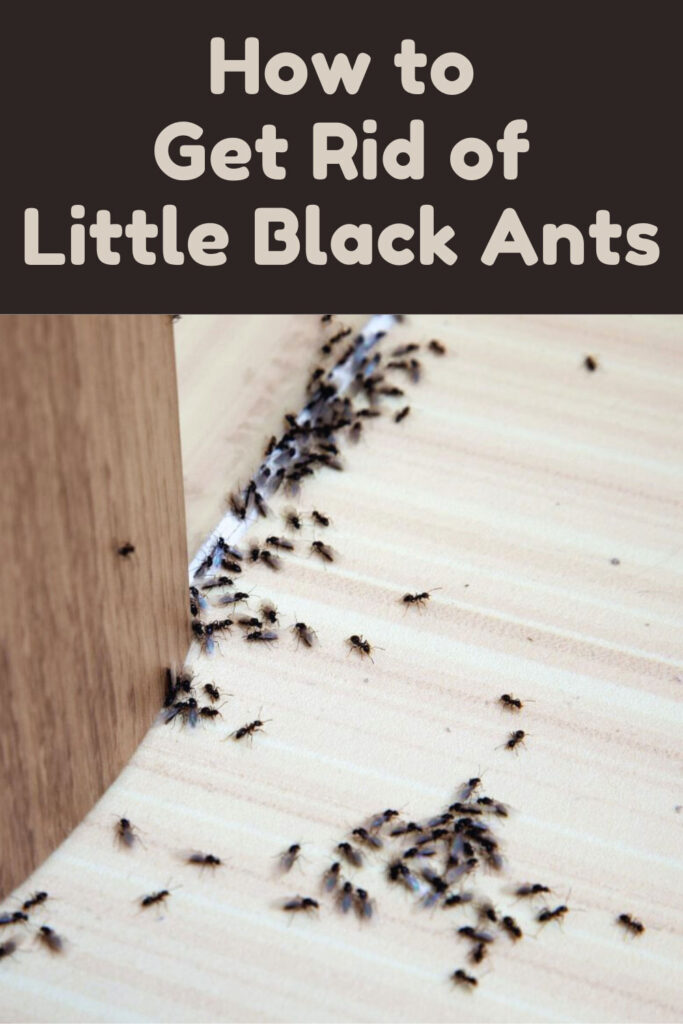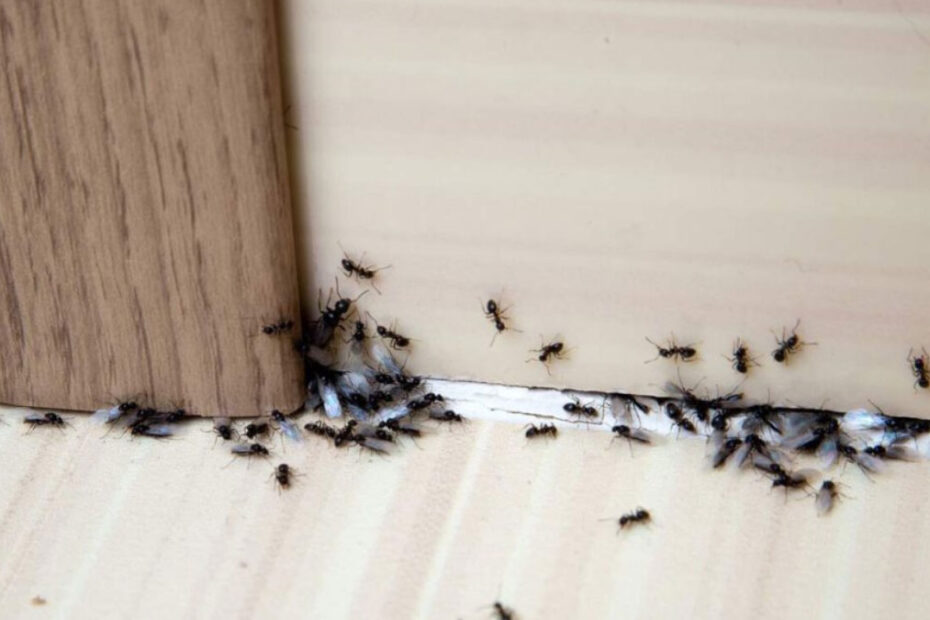Finding little black ants marching across your kitchen counter can be frustrating. These tiny invaders seem to appear out of nowhere, making a beeline for any crumbs or spills left behind. You’re not alone in this battle; countless homeowners face the same dilemma.
Understanding why these ants have chosen your home is the first step in evicting them. They’re often drawn by food and water sources, so a clean and dry environment is your best defense. In this guide, you’ll discover effective strategies to get rid of these pesky intruders and keep them from coming back.
Key Takeaways
- Understand the Appeal: Little black ants are primarily attracted to food and water sources, so keeping your home clean and dry is essential for prevention.
- Proper Identification: Recognizing little black ants by their physical traits and common habitats helps in effectively targeting control measures.
- Preventive Measures: Sealing entry points and maintaining cleanliness are crucial steps to keep ants out of your home.
- Natural Remedies: Solutions like vinegar spray and diatomaceous earth offer eco-friendly alternatives to chemical treatments.
- Chemical Solutions: Ant baits and insecticide sprays can provide quick relief, especially during severe infestations.
- Long-Term Approaches: Regular inspections and, if necessary, professional pest control services ensure ongoing protection against little black ants.

Identifying Little Black Ants
Identifying little black ants is essential to effectively eliminate them. Recognize their physical characteristics and understand their common habitats to better target your pest control efforts.
Physical Characteristics
To identify little black ants, look for these specific traits:
- Color: Black with a glossy appearance.
- Size: Workers measure 1/16 to 1/8 inch long.
- Antennae: Segmented with 12 distinct segments.
- Body Shape: Two nodes on the petiole, visibly separating the thorax and abdomen.
These characteristics distinguish little black ants from other ant species, helping you confirm their presence.
Common Habitats
Little black ants prefer specific environments. Target these areas to locate and eliminate their nests:
- Outdoors: Often found under rocks, logs, or inside decaying wood.
- Indoors: Commonly seen near kitchens and bathrooms, drawn to moisture and food scraps.
- Trails: Notice their foraging trails along baseboards, edges of walls, and kitchen countertops.
By understanding their habitats, you can more effectively address and prevent infestations. Keep your home clean and dry to deter these pests.
Preventive Measures
To keep little black ants from invading your home, adopting preventive steps is crucial. These measures focus on making your home less inviting to ants.
Sealing Entry Points
Inspect your home for potential entry points. Pay attention to:
- Cracks and Crevices: Check window frames, doorways, and the foundation for any gaps.
- Utility Openings: Examine areas around pipes, vents, and electrical outlets.
Use caulk or weather stripping to seal these openings. For larger gaps, expanding foam might be necessary. Keeping entry points sealed blocks potential ant invasions.
Maintaining Cleanliness
A clean home is less attractive to little black ants. Focus on these key areas:
- Kitchen: Wipe down countertops and sweep floors regularly. Store food in airtight containers.
- Trash Areas: Take out the trash frequently and ensure garbage bins have tight-fitting lids.
- Dining Areas: Clean up crumbs and spills immediately. Regularly check under appliances and furniture for hidden food debris.
These practices reduce the sources of food and water that attract ants, helping to prevent infestations.
Natural Remedies
Natural remedies offer an effective and eco-friendly way to eliminate little black ants without the use of harsh chemicals. These solutions leverage common household items to disrupt and deter ant activity, providing a safe alternative for households with pets and children.
Vinegar Spray
Vinegar is a powerful natural deterrent for little black ants. Its strong scent disrupts their scent trails, making it difficult for them to follow paths to food and water sources.
How to Make and Use Vinegar Spray:
- Mix Solution: Combine equal parts white vinegar and water in a spray bottle.
- Identify Trails: Locate areas where ants are frequently seen.
- Apply Spray: Liberally spray the mixture directly on ant trails, entry points, and surrounding areas.
- Wipe Surfaces: After spraying, wipe the surfaces with a clean cloth to remove ant pheromones.
Diatomaceous Earth
Diatomaceous earth (DE) is a natural, non-toxic powder made from fossilized aquatic organisms. It effectively kills ants by dehydrating them.
- Choose Food-Grade DE: Ensure the DE is food-grade to avoid harmful chemicals.
- Apply Powder: Lightly dust DE along ant trails, entry points, and areas where ants are active.
- Monitor Activity: Check treated areas regularly and reapply as needed, especially after cleaning or rain.
- Safety Precautions: Wear a mask to avoid inhaling DE when applying it.
Using these natural remedies helps manage little black ants without introducing harmful substances into your home environment.
Chemical Solutions
When natural remedies aren’t enough, chemical solutions can be effective for eliminating little black ants. These methods can quickly reduce ant populations.
Ant Baits
Ant baits are one of the most effective chemical solutions. They attract ants, who carry the poison back to their colony, killing the queen and other ants.
Common Types:
- Gel Baits: Easy to apply in cracks and crevices.
- Granule Baits: Useful for outdoor areas and large spaces.
- Liquid Baits: Effective for both indoor and outdoor use.
Application Steps:
- Identify ant trails.
- Place bait stations along trails and near entry points.
- Monitor and replace bait as needed.
Insecticide Sprays
Insecticide sprays offer immediate relief by killing ants on contact. They are useful for large infestations and treating areas where ants frequently enter.
Types:
- Residual Sprays: Leave a chemical barrier that continues to kill ants over time.
- Non-Residual Sprays: Provide immediate results but don’t leave a lasting barrier.
Application Steps:
- Identify high-traffic areas and entry points.
- Spray directly onto ants and their trails.
- Follow label instructions for repeat applications.
Use these chemical solutions cautiously and follow all safety guidelines, ensuring any treated areas are safe for family and pets.
Long-Term Solutions
Long-term solutions play a vital role in keeping little black ants away from your home permanently. Focusing on continuous measures ensures that you’ve safeguarded your environment against future infestations.
Professional Pest Control
Professional pest control provides an expert-level approach to exterminating and preventing little black ants. Pest control specialists use advanced techniques and tools, ensuring comprehensive treatment.
Advantages of Professional Pest Control:
- Expert Knowledge: Technicians understand ant behavior and habitat.
- Customized Plans: Solutions tailored to your specific infestation.
- Long-Lasting Results: Treatments with extended protection.
Steps Involved:
- Assessment: Technicians conduct a thorough inspection of your property.
- Treatment: Application of appropriate pesticides and baits.
- Follow-Up: Regular visits to ensure effectiveness and address any resurgence.
Regular Inspections
Regular inspections help you detect and address ant problems before they escalate. Consistent monitoring and maintenance create an inhospitable environment for ants.
Key Inspection Areas:
- Kitchens: Check for crumbs, spills, and food storage issues.
- Bathrooms: Inspect for moisture sources and seal leaks.
- Perimeters: Examine windows, doors, and utility openings for entry points.
- Monthly: General home inspection.
- Seasonal: Before and after peak ant activity seasons.
- Post-Treatment: More frequent checks following professional treatment to ensure success.
Implementing these long-term solutions fortifies your home against little black ants, creating a lasting defense.
Conclusion
By understanding the habits and characteristics of little black ants, you can effectively target and eliminate them from your home. Maintaining a clean and dry environment, sealing entry points, and using natural or chemical remedies are all crucial steps in your battle against these pests. Don’t forget the importance of long-term strategies like professional pest control and regular inspections to ensure your home remains ant-free. With these comprehensive approaches, you’ll be well-equipped to protect your home from future infestations and enjoy a comfortable, pest-free living space.
Frequently Asked Questions
What attracts little black ants to kitchens?
Little black ants are primarily attracted to kitchens due to the availability of food and water. They seek out crumbs, spills, and moisture, making kitchens a common target.
How can I identify little black ants?
Little black ants are glossy black, small (1/16 to 1/8 inch), and have segmented antennae with a distinct body shape featuring two nodes. They can usually be found indoors near kitchens and bathrooms.
Where do little black ants commonly live?
Little black ants often reside outdoors under rocks and logs, or indoors near kitchens and bathrooms where they find moisture and food scraps.
What preventive measures can be taken to keep little black ants out?
Seal potential entry points like cracks and crevices around windows, doorways, and utility openings using caulk or weather stripping. Maintain cleanliness by wiping surfaces, storing food in airtight containers, and promptly cleaning up spills and crumbs.
Are there natural remedies to eliminate little black ants?
Yes, natural remedies such as vinegar spray and diatomaceous earth (DE) can be effective. Vinegar disrupts ant scent trails, while DE dehydrates and kills ants. These methods are eco-friendly and safe for families and pets.
What chemical solutions are effective against little black ants?
Chemical solutions like ant baits and insecticide sprays can be effective. Ant baits attract ants who carry poison back to their colony, while insecticide sprays provide immediate relief by killing ants on contact. Use with caution and follow safety guidelines.
Why is professional pest control recommended for long-term solutions?
Professional pest control offers expert knowledge, customized plans, and thorough treatments, along with follow-up visits to ensure long-lasting results. Regular inspections can detect and address ant problems early, preventing future infestations.
